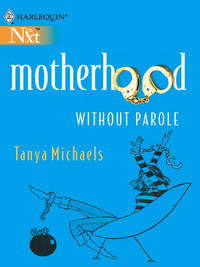
Полная версия
Dating The Mrs. Smiths
Anger was supposed to be one of the early stages of grieving, followed later by depression and eventually acceptance, but I seemed to experience them in a random and sometimes repeating jumble.
For Sara’s sixth birthday, I’d thrown an all-out bash, even scrimping and saving beforehand to rent a pony. There had been brief, teary moments that day when I knew she’d been thinking about her father, but, mostly, the sugar-charged five- and six-year-olds running and screaming through my house had served as a decent distraction. Maybe I should have invited them all back for my birthday today. Even if I had, I’d still have to deal with now, the night, and the realization that I was forty and alone.
Forty was fine, in theory, this just wasn’t where I’d planned on being in my life. When Tom and I had married right after his winter graduation, I’d been young and uncertain in some areas. Moving away from the shelter of the small Georgia town I’d grown up in had been a huge change; losing my dad had been devastating. But I’d had Tom at my side to help me work through it, and I’d possessed lots of youthful optimism. Convinced I’d become accomplished and assured as I grew older, I took a part-time job as a receptionist and threw myself into efforts to be the perfect wife and, one day, mother. I’d had visions of hand-knitted booties, future PTA presidencies, the day when Tom would brag to an unhappy co-worker on his second marriage to a petite trophy wife that I was more than enough to keep a man happy at home.
I’d thought that by forty, Tom and I would be raising teenagers. I hadn’t counted on the two miscarriages before having Sara and being over thirty when I had my first baby. I had imagined we’d be financially secure after wisely investing for several years, maybe sneaking off for the occasional romantic cruise. I hadn’t expected to be dashing around town trying to find a job, second-guessing the decisions I had to make for myself and my children.
That was what really pissed me off about this birthday, about my age. Not the wrinkles, which were so far mostly limited to the laugh lines around my blue eyes; not the streaks of silver, which didn’t stand out too much yet in my pale hair; not even the sagging boobs, which I could claim to have earned nobly by nursing two children. No, what grated my cheese was the fact that I’d pictured having a stable life by forty, one in which I knew what the hell I was doing.
Boy, had I been off the mark.
After breakfast in the morning, I still had a few minutes before I needed to pick up Sara. Deciding there was no time like the present to take proactive steps toward our new future, I phoned a woman who had been in Sara’s and my Mommy and Me group. Having heard through the grapevine that Lindsay and her husband had sold a house not far from us a few months ago, I was curious to know if she’d recommend her agent. If so, it might save me from randomly sorting through the 340 Realtors in our area. If not, I could at least cross the guy off the list and narrow down prospects to the other 339.
Lindsay was the proud mother of a seven-year-old little boy, four-year-old girl and their six-month-old baby sister. As we talked, all three of them seemed to be clamoring for Lindsay’s attention, along with her husband—who, she informed me, was packing for an overseas business conference and not a lot of help with the trio of noisemakers.
“So you’re serious about selling the house?” she asked over someone’s crying and her husband demanding to know if she’d seen his other brown belt. “I don’t envy you. That whole process was such a pain, I’d…oh, but I’m sure you’ll have a much better experience.”
Definitely. Because I’d been the poster child for good luck lately. “Well, I have a great job waiting for me in Boston and family there, so I think the move will be healthy for me and the kids.”
“I’m glad to hear it. I—did you check the closet? What about the hook behind the bathroom door? Sorry, Charlie, I was talking to Mark there, not you. Anyway, I’m thrilled you’ll be closer to helping hands. I’ve always felt so awful that there wasn’t more I could do, but with the pregnancy and everything…”
“I understand, Lindsay.” And I did. But understanding hadn’t eased the sting completely. After Tom had died, I’d felt as if I’d not only lost him but the circle of friends we’d had, which was made up primarily of other married couples.
At first, people had invited me over, but it had been awkward, like being the only unicorn on an ark full of paired-off animals. I don’t remember if the invitations stopped first or if I’d started making excuses not to go. Maybe the gradual distance was my fault, but I got the impression everyone had been relieved when they didn’t have to tiptoe around marital subjects anymore. I wondered with sudden insight if this was part of the reason I was so comfortable with a woman over a decade younger than me who didn’t even have a serious boyfriend, much less impending nuptial plans.
“Just know that you’re in our prayers and our hearts,” Lindsay added. “You give me a holler if there’s ever anything I can do for you.”
“I would be grateful for that agent’s name and number,” I reminded her cheerfully.
“Oops. Right, sorry.” She’d just finished reciting the information I’d called for when she was interrupted by her husband again, this time because he couldn’t find his cell phone. “Oh, for… I can’t believe they let this disorganized man plan their budget at work! I’d better run, or he’s going to end up missing his flight. You know how husbands are.”
There was a sharp silence, followed by immediate apologies I was too slow to stem. “I am so, so… I shouldn’t have said that, Charlie. Honestly, I don’t know where my head is. The last thing you need is to be reminded… I didn’t mean to—”
“It’s okay, Lindsay. Tell Mark I said hi.” On the bright side, I told myself as I hung up, compared to that conversation, telling Rose about the move this afternoon would be a breeze.
Except that hours later, after spending an active day at the park and getting the kids tucked in for a short nap, calling my mother-in-law didn’t seem any easier. Why was this so hard? Because it’ll be real then. This chapter of your life will come to an end.
Then again, once it did, maybe I could move on. Maybe I’d reach a point where my emotions weren’t hovering so close to the surface, like bruises just under the skin, where tiny reminders weren’t around every corner, catching me off guard and evoking a fresh sense of loss. People assured me I’d adjust to the grief; mostly, to my extreme shame, I just wanted it gone. How terrible was it that sometimes I wished I could just forget the man who’d fathered my children and spent half his life with me?
Maybe my guilt was what made talking to his mother even more difficult.
But stalling wasn’t helping anyone. I sat on the sofa with the cordless phone, propping my feet on the coffee table and sinking down in the cushions. Then I made the call.
To say Rose was startled to hear from me would be an understatement. “Yoah stahting to worry me, Chahlie.”
I wondered absently if the kids would one day speak with Bostonian accents.
“So many calls in such a short time!” she exclaimed. “Oh, but you’re probably calling to say thank you.”
Belatedly, I recalled the sunshine-yellow blouse that had arrived yesterday. My own fault that it was too small and, if buttoned across my chest, would probably get me arrested. “Well, yes, thank you for the shirt, but—”
“You don’t like it?”
“Oh, no, it’s, um…bright. Very cheery. I was just going to say that I have an additional reason for calling.”
“Are you unwell? The children?”
When Tom had died, I’d felt I should be the one to tell her. The conversation was a blur to me, except for Dianne taking the phone when I couldn’t get through the words, but the sudden panic in Rose’s voice gave me a moment of déjà vu, a flicker of repressed memory.
“Everybody’s fine,” I rushed to assure her. “Actually, I have good news.”
“This is what you sound like when you’re happy?”
“Well. It’s the kind of news that’s good in the long run but chaotic in the short. The kids and I are moving. To Boston. Kazka is closing the warehouse and offices here and sending me up north.”
“Boston? Why, that’s fantastic! How soon will you be here? I have a friend with a granddaughter just Sara’s age, they’ll get along famously. And there are a couple of private schools we might still be able to get her in, even though the year’s started. Thank God you have plenty of time to put Ben on all the right waiting lists. You’ll just need to—”
“Whoa, slow down!” I hadn’t even told the kids yet, and she’d already yanked them out of the public school system? “I, uh, appreciate your enthusiasm, but I’m still feeling a little overwhelmed by the impending move. Just getting there is going to be an ordeal.” I didn’t relish a road trip with toddlers and a German shepherd, but paying for airfare was out of the question. Besides, how else would I get our van to Boston?
“You didn’t breathe a word of this last time we spoke. Were you holding out until you had a definite buyer?”
I meant to tell her that this had all been rather sudden, but instead echoed, “Buyer?”
“When do you close?” she asked. “Did they meet your asking price? I hope you’re not letting yourself get taken advantage of with all kinds of silly demands like recarpeting the place or giving them your washer and dryer.”
I couldn’t imagine anyone actually wanting my laundry set, which dated back to the Paleozoic, but it was all too easy to picture new occupants demanding carpet untouched by kid, Kool-Aid or dog. Thoughts like that were rather cart before the horse, however. I needed people to come see the place before I started worrying about haggling over the contract.
“We haven’t sold the house quite yet.” Or put it on the market, if one wanted to get technical. “But I’m absolutely confident it won’t be a problem.”
“Oh.” Her dubious tone didn’t reflect my confidence, not that I blamed her. Mine was fake, anyway. “Well, I’m sure it will be all right, dear.”
It would be, eventually. After I’d told the kids and we’d all adjusted to the idea. “I’ll keep you updated on the specifics, but I should run now—wake the kids up and figure out what to do for dinner.”
“Goodness, if you let them sleep so late in the day, how on earth do you get them to bed at night?”
I sighed. “Talk to you soon, Rose.” Was it already too late to change my mind about the move?
CHAPTER 3
As I walked down the hall to get the kids, I heard murmurs and rustles from Ben’s room, along with the familiar annoyed cry as he realized he was waking up to a wet diaper. Even that tugged at my heart. I loved my kids so much and I just wanted to make the right decisions. Sometimes when I opened the door, where Sara and I had stenciled his name in animal-themed letters, I felt a jolt of happy anticipation at seeing him, snuggling him close. I knew that as they grew, snuggling opportunities became more rare.
Ben was standing in his crib, holding the cherrywood rails and bouncing slightly as he began chanting “Mmm-a, mmm-a.” Maybe I was finally pulling ahead of the oscillating fan in the “Are you my mother?” race.
Once I had Ben changed, I carried him into Sara’s room and sat on the edge of her twin bed, smiling at the way her dark hair was spread across the Barbie pillowcase. How odd that she could be so feminine and tiny and delicate, yet still look so much like her father. Ben had darker hair than mine, too, but he had my blue eyes, not Sara’s and Tom’s deep brown ones. I gently shook her shoulder. My daughter woke up in stages, and it usually took at least ten minutes before she was alert enough to do more than stare blankly into space and hug her floppy-eared pink-and-white elephant.
When she was more awake, I asked if they wanted to go talk on my bed. About half the time, I keep the baby gate latched in the hall to give Gretchen the back half of the house as refuge from Sara’s attempts to put lipstick on the dog or to make her the horsey in a game of cowgirl. Also, keeping the gate up meant that the children couldn’t breeze into my room whenever they wanted and destroy it in a matter of seconds, like a swarm of locusts dressed in OshKosh. The kids loved the rare treat of cuddling in the master suite on special occasions such as rainstorms, story time, or when I felt whimsical enough to let them jump on the bed for a few supervised minutes.
I’d already lumped the pillows into a mound against the rounded oak headboard, and a blue leather photo album sat on the nightstand. I was hoping visual aids would keep Sara in a positive mindset.
I hugged the kids close. “You like talking to Nonna Rose on the phone, right?”
Sara had enjoyed the Saturday call following the night of the pasta fire. Long-distance charges meant nothing when you were six, and she’d sung her entire repertoire of songs, from “Alice the Camel” all the way to “If You’re Happy and You Know It,” which is Ben’s favorite because he likes to clap along.
My daughter nodded, her face lighting up. “Can we call her again?”
“Even better, wouldn’t you like to see her in Boston?”
“You mean, visit Nonna?”
I wondered if she remembered the trips we’d taken when she was younger. We’d spent the Christmas before Ben was born in Boston but hadn’t been back since.
“More than just a visit, pumpkin. You know how Billy from across the street moved?” The house had promptly been bought by a couple eager to retire here before another Milwaukee winter set in. Would that God sent such retirees my way. “And Mommy explained how people go to new homes sometimes? We could get a house near Nonna.”
“No, thank you, Mommy. We don’t need a new house. I like this one.”
“But I need a new job, Sara-bear. There’s a place where I can go to work there. And lots of fun things for you to do.” I flipped open the photo album in my lap, holding it up so both kids could see the pictures of Rose’s house. “You remember? We had such a good time.”
“Will I get to stay in my class and see Mrs. Bennings every day? Will Callie still get to come over?”
“You won’t see them every day, but maybe we can visit sometimes. And you’ll have a new class, meet lots of new friends.”
Ben was sucking on the side of his hand, taking this with the nonchalance I had anticipated. Unfortunately, Sara was also reacting pretty much the way I’d expected. Her doe brown eyes grew large and her bottom lip quivered. She squeezed Ellie hard enough that I feared for the fuzzy pachyderm’s seams. I’d tried to make new sound exciting—Sara loved new books and new toys and new movies—but she wasn’t buying it.
She scrambled off the bed, her eyes welling with tears. “I don’t want to move. Don’t work anymore, stay home with us. Like you used to!”
The slurping sounds had stopped and Ben looked up with an anxious expression, as if he were trying to calculate where this fell on the uh-oh meter.
“Sara, I wish I could, honey, but I’ve got to have a job.”
“Why? Daddy didn’t want you to have one. Everything was better before!”
She was right about Tom not wanting me to go back to work when she’d started school, but I hadn’t realized she’d been aware of our disagreeing on the subject. “Sara, sometimes things change, and even if we don’t really want them to, that doesn’t mean the changes won’t be for the best.” Great. Now I was the one spouting the inane clichés, which weren’t going to do a damn thing to lessen her worry about leaving home and losing the people close to her. How could I ask her to give up Dianne, her friends, the neighbors she’d known since she was a baby, when she was still coping with the loss of her adored father?
“No!” Sara shrieked, wild-eyed. “Nononono!”
Well. Not much chance of refuting that logic.
I let her run out of the room, and didn’t follow to scold her when she slammed her door. By then, Ben had started to cry in earnest, so I sat for a few minutes comforting him. Should I have been easing them into the notion over time instead of just dumping it on them?
Ben’s tears subsided to hiccups a few minutes later, and I carried him toward Sara’s room. Heaven knows sitting on my bed wondering if I’d completely mishandled this wasn’t accomplishing anything. I knocked once, opening the door when Sara didn’t answer. I didn’t dare set Ben down because he’d toddle over to help himself to her toys, and something told me she wasn’t in her most magnanimous sharing mood. Trying to carry on this conversation while my children beat each other with LEGO blocks wouldn’t be an improvement.
As it was, I was reduced to talking to a pink lump. She was sitting on the floor of her room, her bed comforter pulled over her head, with only Ellie’s skinny plush tail visible.
“Sara, I know you don’t want to move, but we have to. If you just give it a chance, I think—”
“What if Daddy came back?” The comforter slid off, her earlier anger replaced by a deep sadness that looked out of place on a child. “What if Daddy came back, and we weren’t here?”
Oh, God. My heart clenched painfully. This never got easier, no matter how many times we went through it. “We’ve talked about this, pumpkin. You know Daddy can’t come back. But he can watch over you, and he’ll never stop loving you. He’ll watch over you no matter where we live.”
“You promise?” Her voice trembled.
“I promise. We’ll find a house you and Ben really like. And you can help me decorate it. We’ll make lots of good memories there, just like we have here.”
She thought it over. “I can have a pink room?”
“Any color you like.” I rearranged Ben enough that I could press my daughter close to me, her tears warm and damp against the front of my blouse. “It will be okay, bear. You’ll make lots of new friends in Boston. And I bet we’ll see snow in a few months.”
There was silence as she considered the benefits of playing in snow—not that she’d had much experience with the fluffy white stuff, but she’d seen it on television.
I pushed my advantage. “We can celebrate our moving to a new house by ordering pizza tonight.”
“Pizza!” Sara bounded back. “Yay!”
Ben rocked in my lap, also shrieking with delight. Crisis averted.
What were the odds everything to come could be dealt with so easily?
Despite suffering my share of headaches in the past, I didn’t think I’d ever experienced an actual migraine such as I’d heard other women describe. Turns out, trying to move to another state is one big migraine, complete with blinding pain and the urge to curl up quietly in the fetal position.
During my initial meeting with the real-estate agent, the day after I’d called Lindsay for his number, the man had informed me that if I would just add a half bath at the front of the house, we could dramatically increase both the chances of selling it quickly and the asking price. Skipping over my skepticism that there was sufficient space for another room, no matter how small, I patiently explained that I had neither the money nor the time to worry about plumbing renovations.
We hustled the house onto the market, stipulating in the paperwork that I had two small children and a dog, so interested parties and their agents needed to call ahead before coming to look. Two nights later, my Realtor let himself in with his lockbox key on an unannounced visit to show the house to a middle-aged couple with a teenage son. Toys were strewn all over, the dinner dishes were still sitting on the kitchen counter, and Sara and I were having a heated discussion about her decision to “improve” her room by coloring flowers on the wall with a marker. Gretchen was so unnerved by the sudden appearance of strangers that she’d thrown up—a crackerjack watchdog, that one. Worse, since I hadn’t had time to prepare Sara for the walk-through, she’d decided that these invasive strangers were the problem, that they wanted to take away her home. She’d commanded them to stay out of her room and punctuated the order by slamming a door.
Why the man who actually worked for me didn’t understand that the call-ahead commandment applied to him as well as outside Realtors, I have no idea. It would have given me a great deal of temporary satisfaction to fire him, but then I’d have to pay listing fees out of pocket now instead of them coming from his six-percent commission after the sale. I had nothing out of pocket. I barely had pockets.
In the week and a half since, we’d only had a handful of viewers, and none of them had called back. My ever-helpful real-estate agent seemed to think that getting someone to fall in love with the house would be easier if the kids and I weren’t actually here when people came to see it. So we were living in a DEFCON four state, diaper bag always at the ready so we could leave on a moment’s notice. Oddly enough, my mother-in-law’s increasingly enthusiastic, near-daily calls to see if we had found a buyer yet weren’t helping. Nor was Sara’s anxiety over Halloween. While doing some sort of holiday creative-writing unit at school, my daughter had become fixated with the idea that our move might prevent her from trick-or-treating. I promised her, repeatedly, that no matter what state we were living in at the end of the month, she would be in costume and begging door-to-door for candy.
At least I knew we could stay with Rose while I house hunted in Boston, a daunting task. I was due to be there the fourth week of October to start my new job. In other words, I had nine days. Dianne, with her typical graciousness, had spent a lot of time here over the past couple of weeks, helping me repaint over crayon marks and grubby handprints. I was trying not to think about her shipping out tomorrow afternoon. Saying goodbye to the person who had helped me cope with the most devastating change of my life was far more daunting than moving to another state.
Other than some minor house maintenance, I had hardly rounded up all the boxes I would need, much less begun packing. Martin had promised I’d receive half pay during the transitional, out-of-work interim between my positions. Thank God, or we’d be living in boxes instead of labeling them Bedroom, Kitchen and Kids. Apparently, preparing for the move, working full-time during the office’s last week before shutdown and trying to calm Sara out of hyperventilating every fifteen minutes wasn’t a full enough schedule for me. Because I’d also decided to go in with Mrs. Winslow and throw a “jewelry party.”
She’d recently rediscovered her inner entrepreneur but lacked a good-sized living room for cramming in a semicircle of attendees. So, we’d invited the little old ladies of the neighborhood to my house for chips and dip and the chance to watch us model jewelry manufactured by Mrs. Winslow’s parent company, ZirStone. She and I would each get a cut from any sales. It just so happened she’d mentioned the business deal to me on the same day I’d been getting cost estimates from moving companies, catching me in a weak moment when I’d been contemplating hocking the television and VCR for cash.
Today was the party. I’d bribed Sara with a rented video I was allowing the kids to watch in my room. Ben was viewing the movie from inside the comfort of his playpen, accompanied by a few of his favorite toys. Now, if I could just get someone from the neighborhood interested in some of the quality synthetic gemstones we had available, perhaps I could justify losing half a Saturday of potential packing. But fifteen minutes into my sales pitch, a real-estate agent called wanting to show the house.
“I wanted to know if this afternoon would be good,” he said.
I peeked around the corner of the kitchen, where Mrs. Winslow was opening a gray box of earrings with a flourish Vanna White would have envied. “Approximately what time were you thinking?”
“We’re looking at a place the next subdivision over, so about ten minutes.”
“Ten minutes?” I could barely get both children properly strapped into their respective car seat and booster in that amount of time, much less empty the living room of guests.












